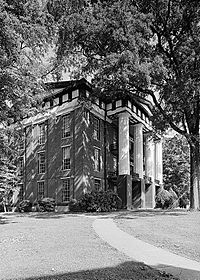Wager Swayne facts for kids
Quick facts for kids
Wager Swayne
|
|
|---|---|

Medal of Honor recipient
|
|
| Born | November 10, 1834 Columbus, Ohio |
| Died | December 18, 1902 (aged 68) New York City, New York |
| Place of burial | |
| Allegiance | United States of America Union |
| Service/ |
United States Army Union Army |
| Years of service | 1861–1870 |
| Rank | |
| Commands held | 43rd Ohio Infantry 45th U.S. Infantry Regiment |
| Battles/wars | American Civil War |
| Awards | Medal of Honor |
| Relations | Noah Haynes Swayne |
Wager Swayne (November 10, 1834 – December 18, 1902) was an important figure in American history. He served as a colonel in the Union Army during the American Civil War. Later, he became the last major general of volunteers for the Union.
Swayne earned the Medal of Honor, which is America's highest military award. He received it for his brave actions during the Second Battle of Corinth. After the war, he also played a key role in the state of Alabama. From March 1867 to July 1868, he was like a military governor there. He helped control the state government after new laws were passed by the U.S. Congress.
Contents
Wager Swayne's Life and Military Service
Early Life and Education
Wager Swayne was born in Columbus, Ohio. His father, Noah Haynes Swayne, was a very important judge. He served as an Associate Justice on the Supreme Court of the United States.
Wager Swayne went to Yale University. After finishing college, he became a lawyer in Ohio.
Fighting in the Civil War
When the Civil War began, Swayne joined the Union Army. In August 1861, he became a major in the 43rd Ohio Volunteer Infantry Regiment. This group was being formed in Mount Vernon, Ohio.

Swayne fought in major battles like Iuka and Corinth. He was promoted to colonel after his regiment's previous colonel died. He led the 43rd Ohio Volunteer Infantry very well. He was part of the Atlanta Campaign and the Carolinas Campaign.
In February 1865, Swayne was badly hurt at River's Bridge in South Carolina. He lost his right leg because of this injury.
Promotions and Awards
Even after his injury, Wager Swayne continued to be recognized for his service. On March 13, 1865, President Abraham Lincoln made him a brigadier general of volunteers. The U.S. Senate confirmed this promotion.
Later, in May 1866, President Andrew Johnson promoted Swayne again. He became a major general of volunteers. He was the very last major general of volunteers appointed during the Civil War period. He also became a colonel in the 45th United States Infantry Regiment.
In 1893, Swayne received the Medal of Honor. This award was given to him for his "conspicuous gallantry" (great bravery) during the Battle of Corinth. He helped bring order back at a difficult time and led his regiment in a charge.
Role After the War
After the Civil War, Wager Swayne continued to serve the country. He led the Freedmen's Bureau in Alabama from 1865 to 1868. The Freedmen's Bureau was an organization that helped formerly enslaved people.
From March 1867 to July 1868, Swayne was in charge of the army in Alabama. This meant he had a lot of control over the state government. Even though Robert M. Patton was still the official governor, Swayne made many of the important decisions.
Later Years and Legacy
Swayne left the army in 1870. He then moved to Toledo, Ohio, and started a law practice. In 1881, he moved to New York City and opened another law firm. He focused on working with telegraph and railroad companies.
Wager Swayne passed away in New York City. He was buried at Arlington National Cemetery in Virginia.

